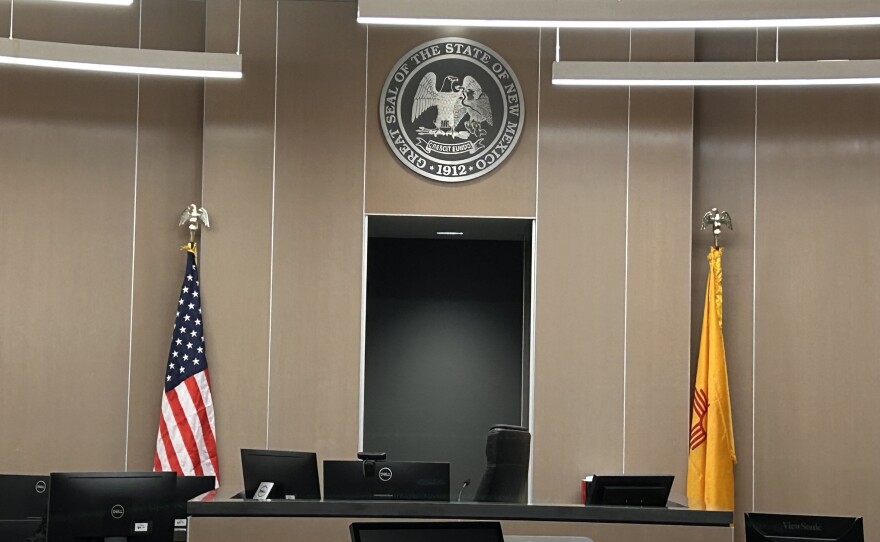Attorneys for the state Republican Party and other plaintiffs have filed new evidence in the New Mexico redistricting case ahead of a ruling later this week. The plaintiffs argue the Democratic-controlled Legislature intentionally diluted GOP votes in the 2nd Congressional District, which used to lean Republican. They say newly-surfaced text messages and emails back that up.
During last week’s trial, attorneys for the plaintiffs cited text messages sent by Senate President Pro Tem Mimi Stewart to an unnamed representative for the Center for Civic Policy. The top Senate Democrat was commenting on a draft map that had her party winning 51% of likely votes.
“That’s not enough for a mid term (sic) election so we adjusted some edges, scooped up more of abq [Albuquerque] and are now at 53%,” she wrote.
Now, new evidence filed with the judge in a post-trial brief shows, while the map was being debated, legislative staff also discussed how well Democrats might perform in each district based on past election results.
In emails subpoenaed by the plaintiffs where several legislative and congressional staffers discussed map options, Director of the New Mexico Senate Democrats Kyle Quinn-Quesada wrote, “All three districts should be above 53%,” in response to a question about whether a certain performance was “required.” In the same thread, he refers to a draft map with a lower performance as, “not doable for our caucus.”

In texts between Leanna Leith, an advisor for then-Speaker of the House Brian Egolf and Democratic U.S. Rep. Melanie Stansbury, the congresswoman expressed concern that Democratic Rep. Teresa Leger Fernandez’s 3rd Congressional District was becoming too red in order to make the 2nd District bluer.
Leith reassured her that Leger Fernandez would be, “Fine, really.” Adding, “We couldn’t even get CD2 up to 52.8% giving Artesia to it. There literally isn’t anywhere else as Republican in the state.”

Artesia is in Eddy County, which is 53.5% Republican, according to the most recent voter registration data. Two precincts in the area are as much as 71% Republican. The city ended up in District 3, increasing its Republican performance to 44%, according to legislative analysis.
The plaintiffs argued these messages confirm that legislative leadership intended to create three districts with enough Democratic voters to ensure party victory in, “all but the most extremely pro-Republican conditions.” They argue balancing the districts so that all have a Democratic performance score above 53% amounted to a “near-perfect gerrymander.”
However, the state Supreme Court determined earlier this year that some partisan gerrymandering is acceptable, as long as it’s not “egregious.”
Counsel for legislative Democrats argued that, to reach that threshold, the map would have to predetermine the results of the election — and it doesn’t. In the 2nd District, Rep. Gabe Vasquez beat Republican incumbent Yvette Herrell last year very narrowly, and Herrell is leading in a recent KOB-TV poll for their 2024 rematch.
Additionally, President of Research and Polling Brian Sanderoff, who created the partisan performance index referenced in the messages, testified at trial that the map does not entrench the Democratic party in power. He said he considers a 53/47 percent split in partisan performance “competitive” and that the 2022 election results prove District 2 is a “toss-up.”
“In 2024, any candidate could win, absolutely,” he said.
State District Judge Fred Van Soelen has until Friday to rule in the case.
Support for this coverage comes from the Thornburg Foundation and KUNM listeners.






